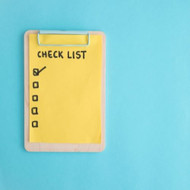Questions to Ask at Your Ophthalmology Appointment
19th Jun 2021

Last week we took Dane for his regular ophthalmology check-up. It’s a long and drawn out day but luckily we only have to go every six months now. Whilst our visits are now pretty run-of-the-mill and uneventful, I thought it might help other parents if I jotted down some thoughts on visiting an ophthalmologist. There was certainly a time when it was extremely stressful – so hopefully this helps some other mums and dads out there.
Has your baby or child just been referred to an Ophthalmologist? Are you unsure exactly what that is, or what they do? Are you a bit nervous about your appointment and what this could mean for your baby/child? Let’s put your worries to ease and go over some basic info you need to know about Ophthalmologists and what you need to know before heading to your appointment. And don’t forget to take a breath, I’ve been there and this time can seem confusing and scary, but you can do it.
What is an Ophthalmologist?
Good question. Basically they are an eye doctor that specializes in surgical and medical eye diseases. They may, however, not love that simple definition, as their credentials will include a doctorate degree in medicine and an additional four years of Ophthalmology residency. An ophthalmologist can specialise, can medically treat eye diseases, implement laser therapy and perform surgery. To put it in other words, you are in good hands!
Taking Your Child to an Ophthalmologist.
Don’t forget your referral letter and any medical cards for your child. If this is your first appointment, I suggest both parents go (if they can), or bring a good friend or family member for support. Bring any eye glasses, patches, etc that your child has been using. Allow 2-4 hours for your appointment – I know crazy right! But in our experience it can be a drawn out process waiting to see the orthoptist first, then waiting to see the ophthalmologist, then if your child needs to have their pupils dilated with drops this will had on about an extra hour while you wait for the drops to work. So bring plenty of snacks and things to keep your child (and you!) occupied. One little hot tip is to bring a hat or sunglasses too for your child, as they may be more affected by glare afterwards if they’ve had their pupils dilated.

Bring plenty of things to keep your child (and yourself!) amused while waiting. Our appointments usually take 2-4 hours!
What Should I Ask My Ophthalmologist?
Your ophthalmologist is most likely going to go over everything you need to know but it is always good to come prepared with a pocket full of questions too. Nothing worse than getting home and remembering something you wanted to ask. It’s always better to ask too many questions, than not enough, so actually write them down, then you won’t forget. Bringing a pen and paper can help you keep notes, sometimes it’s hard to remember everything in the moment, and our children are really good at distracting us when we are trying to listen.
The Questions:
- Why have we been referred to you? You may not know exactly why, yet.
- What is the diagnoses? Get as much info as you can.
- What does this mean, right now? Next month, next year, in 5, 10, 20 years from now?
- Is this permanent or temporary?
- What can be done? What has been done? Ask for case studies and proven examples of real people.
- What are the treatments? What are the statistics for treatments?
- Are there more symptoms, or changes I should be looking for? What are they?
- Who should I call if there’s an emergency at home? Where should I go in an emergency? Is this the sort of thing you call 000 for?
- Does my child need surgery? When will that be? What are the outcomes? What are the side effects?
- How is this going to affect my child’s life?
- Where will the surgery be? Who will perform it? How long will it take? What do I need to do to prepare?
- What are the risks and benefits?
- Are there other options?
- Does my child need glasses? Patches?
- How often will my child need to be treated? Have surgery? Come to these appointments?
- How do I follow up?
- Are we entitled to any special services or benefits?
- What medical and rehabilitation resources are available?
- How can my child continue with a normal day to day life?
- How can we protect our child in the meantime?
- Can I get a second opinion? This one may be hard to ask, but you should always look for a second opinion, especially if you don’t like what you are hearing. Imagine if we had never gotten a second opinion with Dane!
Having children brings with it fears and anxieties we never knew we had before, add on top of that a referral to a doctor you may never have heard of before and that can be even more scary. As someone who has been through this, I hope to arm you with enough information (or questions to gather information), so that this time in your life is just a bit less anxious.
To read more about my personal story with Dane and when he was diagnosed click here.

